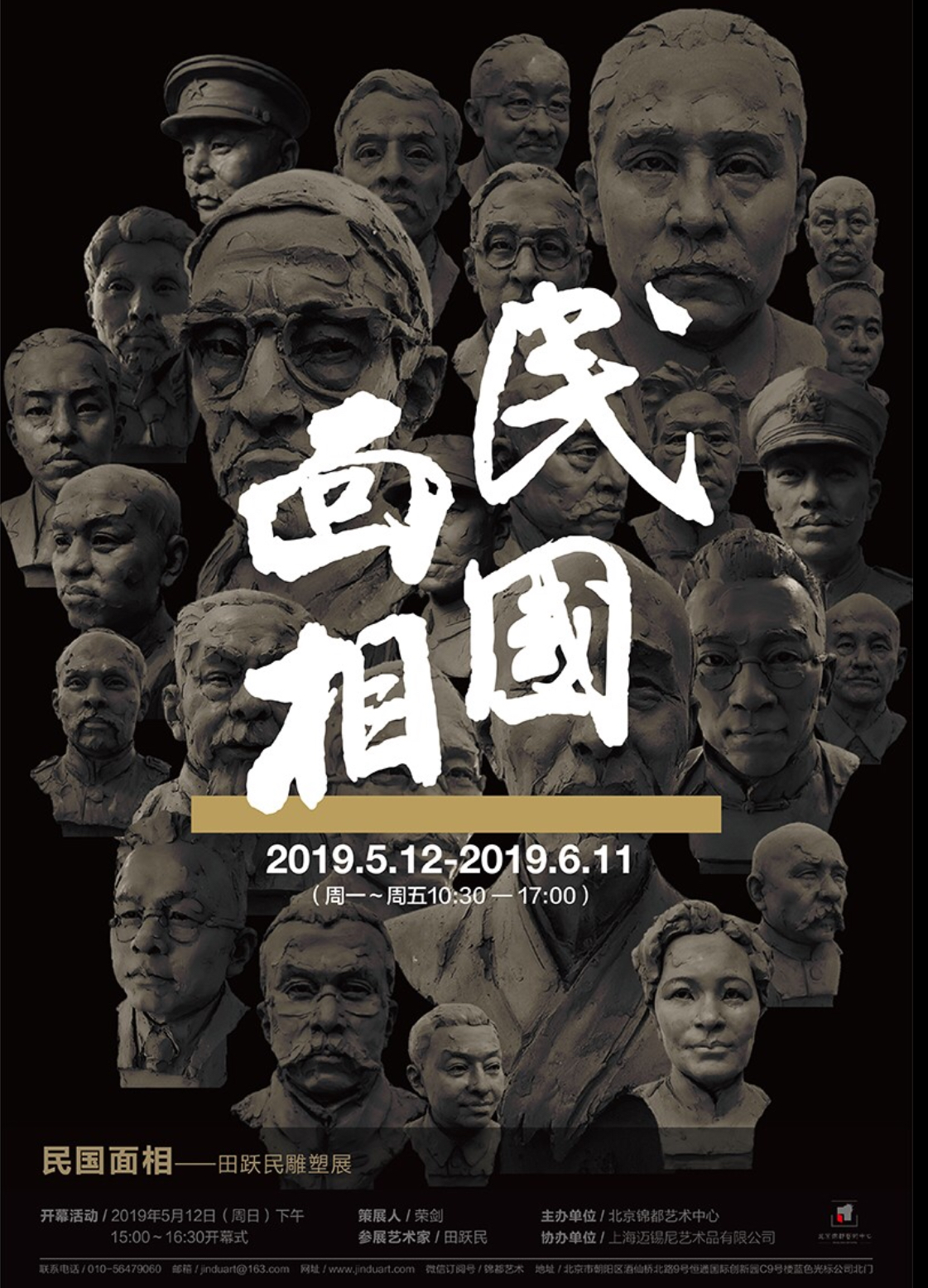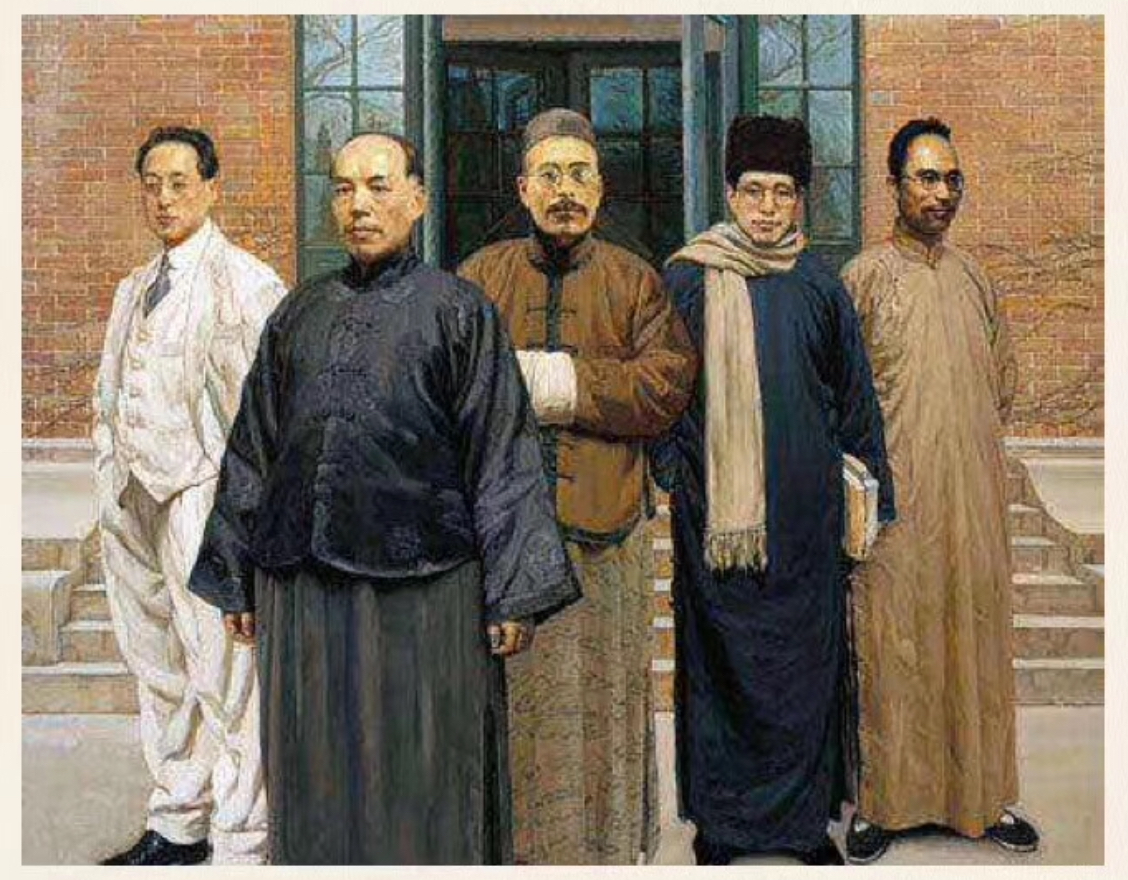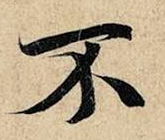From the Xu Zhangrun Archive
老子不服,老子不怕
On 10 October 2024, we mark the Double Ten Festival of the Republic on China by reprinting I Will Not Submit, I Will Not Be Cowed, part of our series Xu Zhangrun vs. Tsinghua University — Voices of Protest & Resistance. It was originally published on 10 October 2019 to mark the 108th anniversary of the Wuchang Uprising of 10 October 1911, a rebellion against the Manchu-Qing court that led to the establishment of the Republic of China on 1 January 1912.
[Note: See also On the Road — Taipei vs. Beijing, 12 January 2024.]
***
Apart from his career as an educator, Xu was also a prominent editor, essayist and public intellectual who actively participated in the long term and broad-based professional effort to nudge the People’s Republic in the direction of constitutional rule and legal probity. The incisive critiques of the Xi Jinping era (December 2012-) that Xu Zhangrun published from early 2016, and in particular the powerful warning he had issued in late July 2018 regarding the nation’s direction under its new Chairman For Life (see his Imminent Fears, Immediate Hopes 我們當下的恐懼與期待, China Heritage, 1 August 2018), had made him the most famous, and most outspoken internal critic.
***
Xu Zhangrun wrote the following essay at the invitation of Rong Jian 荣劍, a prominent independent curator and cultural critic, and it used as a preface for an exhibition of fifty busts of prominent Republican-era Men of Letters and Politicians created by the noted sculptor Tian Yuemin (田躍民, 1958-).
***

***
Xu Zhangrun was forbidden from attending the opening of the exhibition of Tian Yuemin’s sculptures at the Jindu Art Centre 錦都藝術中心, an independent cultural venue in Beijing founded and run by Rong Jian. Xu was also barred from participating in a symposium dedicated to the show. The essay that he had written for the exhibition could not even be published under his own name; it appeared in the independent Hong Kong media outlet H-Media 合傳媒 under the name Teacher Yan Wu 言午老師, that is Teacher Xu 許老師. On the Mainland it appeared under the name Mr Li Zao Run 立早潤先生, that is Mr Zhangrun.
The Mainland reprint was prefaced by an editorial note signed ‘Xiao’ 瀟, the one-character name used by Geng Xiaonan 耿瀟男, a cultural entrepreneur and film critic. When Tsinghua University suspended Xu Zhangrun in March 2019, Geng observed in an online post that, taken as a body of political analysis and commentary, Xu’s work were:
直擊七寸, 劍指廟堂。
Blows directed at their Achille’s Heel;
A sword pointed at their Sacred Heart.
— from the Editorial Introduction to
J’accuse, Tsinghua University!
Introducing the present essay, Geng remarked that:
The exhibition went ahead as planned in the late spring of this Jihai Year of the Pig [2019]. Yet the author of this valedictory introduction was barred from attending the opening. No matter; he has composed a work that speaks to a world far beyond the confines of a gallery. Mirabile dictu: for such writing to appear in an era such as this; for a scholar of such calibre to be living among us.
Read and re-read these words — not merely for what they say, but also to appreciate the deeper meaning they convey and to contemplate the demesne that they lay before you.
Reading these words, at every twist and turn one is aware of the tensile strength of a coiled dragon and the roiling of a potent serpent. These words are hard-won, their majesty resounds like a shock wave. By all rights an essay like this should be included in high school textbooks, yet as I say this I think to myself: Am I indulging in some vacuous ‘China Dreaming’? Or is China now a land where such dreams go to die?
***
Xu Zhangrun’s prose embraces some of the most powerful forms of written Chinese. His is a lapidary style that effortlessly employs the combined virtues of what is often summed up in the shorthand 文史哲 wén shǐ zhé — that is, the literary-historical-intellectual traditions. In this lyrical and telegraphic work a gossamer of word-ideas, historical associations and literary tropes is woven to co-join the temporal with the eternal.
Previously published in Hong Kong beyond the reach of the state, the essay, translated below, was now introduced to Mainland readers with a line by Professor Xu that was eloquent in its simplicity:
老子不服,老子不怕
I will not submit,
I will not be cowed
In 2024, it is a sentiment that also seems to accord with the spirit of Taiwan/ The Republic of China. (See President Lai Ching-te’s National Day Address.)
***
Unemployed, shunned by former colleagues and under constant surveillance, Xu Zhangrun is free to read and write. Undaunted by constant threats he also continues to publish, albeit illicitly overseas. With his cultural activism frustrated by the Beijing authorities, Rong Jian devotes himself to writing and he has published a number of books on contemporary Chinese intellectual thought, also overseas. Jailed for three years on bogus charges related to her business, Geng Xiaonan was released in September 2023. She is forbidden from contacting Xu Zhangrun.
***
This entry in the Xu Zhangrun Archive is also included in The Other China.
— Geremie R. Barmé
Editor, China Heritage
10 October 2024
台灣雙十節
***
Further Reading:
- 「民國面相 – 田躍民雕塑展」在錦都藝術中心圓滿開幕, 新華訪談網, 2019年5月21日
- 言午老師, 蒼茫人世的時代之子, 他們擔道護憲只從真理, 合傳媒, 2019年4月4日
- The Two Scholars Who Haunt Tsinghua University’, China Heritage, 28 April, 2019 (updated on 1 May 2019)
- Xu Zhangrun, Abiding Until Daybreak, 30 September 2019
- The Xu Zhangrun 許章潤 Archive, China Heritage, 1 August 2018-
On the Double Tenth Festival:
- From One to Ten and Back Again — 10 October 2022
- Commemorating a Different Centenary — Dai Qing on the 1911 Revolution
- Audrey Tang, Double Ten Day & The Transcultural Republic of Citizens

***
The Truly Learned engage wholeheartedly with the Great Issues of the Times in their hearts; they are stirred by profound concern for their minds encompass Vital Matters of Universal Significance. Their very Being reverberates empathetically with the Shared Plight of Humanity.
The Truly Learned respond to the Higher Demands of Truth; they neither pander to, nor do they fawn before those in Power.
Lifeblood courses through their writing; their pens ploughing fields of creativity to cultivate a bounty. Even if they must pay the ultimate forfeit, they sally forth undaunted.
讀書人心縈風聲,神馳雨聲,九曲衷腸回蕩的是天下心聲,則聲聲相應,心心相印。讀書人只服從真理,不諂不媚,一方硯田,萬點血噴,縱然英雄骨朽,雖千萬人吾往矣!
— Xu Zhangrun
許章潤
***
The Genius of an Era
A Vast World That Was
蒼茫人世的時代之子
Mr Li Zao Run
立早潤先生
Translated by Geremie R. Barmé
For the Republic was just such a time: A time when all that pertained to the past was challenged and transformed in the crucible of the present. The Republic was also just such a place: One in which far distant poles of East and West could commingle.
It too was suffused with such an ambience: One in which the extremes of the best that might be and the most vile of what was promised to evolve into new fraternity. In that mixing and melding lay possibility; it was an Heroic Era pulsating with all that was ancient suffused with everything that was contemporary. It nurtured them, these figures whose genius shone like brilliant points of light in heaven’s vault.
民國為一時間,承接古今之變。民國是一空間,混融中西之別。民國終成一大氣象,演繹出悍烈寥廓的文野之爭。它們合力輻輳,成就了曠古未有的古今中西大時代,作育出爛漫如滿天星斗的時代之子。
Time is remorseless, its meaning undeniable. The thunder heard through long summer months and the relentless blizzards of bitter winter — none can escape their ever-changing moods. The seemingly endless spaces that open up ahead are also finite, nothing could be more real or particular. All ages past are found therein, all vicissitudes are as breaking waves on the shores of that ever-changing landscape. Such was the world they inhabited, each in a fashion unique unto themselves.
These sculptures, the busts of these figures, arranged here in this exhibition reach out to us with an intimacy, for their long-distant stories are woven into the very fabric of our own times. With an assured blade the sculptor has evoked, one by one, the frozen mien of history itself; that which seemed irrevocably lost is ushered forth once more; it is in our midst. The dead are as though resurrected; herewith a realm beyond being breaks into our now unannounced.
時間無情而有意,夏雷冬雪,無不落諸具體人身; 空間浩瀚卻微茫,滄海桑田,總是起伏於一己方寸。眼前塑像數尊,今古牽連,將時間凝固於刀劈斧鑿; 逝者倏然返場,生死回視,空間霹靂而成世界。
The world that was their battlefield remains long defeated, yet thereby time itself has not been vanquished. The world is ever new, its forward course like an enmeshing skein that cannot be rent asunder. So it is then that they live again; for us their message is vital still.
空間可能陣亡,時間卻幸免於難。於是,世界還在,不絕如縷,因為他們的復活而獲得了世界性。
They are all Men of Letters — Literati. In the Republic such people still existed; thereafter, all that remained were Literary Hacks.
Such Men of Letters appear as our intimates; they radiate an inner warmth that shares the deep lustre of precious jade. Here we see Wang Guowei and Hu Shi: in the luminosity of their writing they invited the finest of the tradition to join them in a modern guise.
Such Men of Letters are soulful. Here we see Shen Congwen of West Hunan and Lin Yutang of Longxi [in Fujian]. In their travels and their constant writing, fueled by conviviality their poetic chivalry meant that they were guardians of a shared humanity.
Such Men of Letters can also be difficult and uncompromising. Here then are Liang Shuming and Zhu Ruiyuan. Both were renowned for being prickly and defiant in their bookish ways. Theirs were, however, inspired spirits whose works share an unmistakeable timbre.
他們叫文人。民國還有文人,其後只剩文痞。文人溫潤如玉,如觀堂先生,如適之先生,以其翰墨光華,承載文教風華。文人情意繾綣,如湘西從文先生,如龍溪語堂先生,凌波謾賦,一觴慵舉,揮灑詩性以護持人性。文人奇崛狷介,如漱溟先生,如仲甫先生,拼卻崢嶸頭角,張狂書生意氣,好一個開敞嘹亮的性靈靈。
They were Men of Letters, the Truly Learned. The Republic of China produced such people; what has been nurtured in their wake are Intellectual Pickpockets.
For the Truly Learned through their reading and writing explicate the world; they address necessary principles and their works reverberate with justified passion. In their pursuit of the Truth they may elicit the hatred and jealousy of Lesser Beings, but ultimately those minions retreat defeated.
The Truly Learned engage wholeheartedly with the Great Issues of the Times in their hearts; they are stirred by profound concern for their minds encompass Vital Matters of Universal Significance. Their very Being reverberates empathetically with the Shared Plight of Humanity.
The Truly Learned respond to the Higher Demands of Truth; they neither pander to, nor do they fawn before those in Power.
Lifeblood courses through their writing; their pens plough fields of creativity and cultivate a bounty. Even if they must suffer the ultimate forfeit, they sally forth undaunted.
他們叫讀書人。民國出產讀書人,其後專豢讀書賊。讀書人惟其讀書,而昌明事理,理述道理,激揚情理,追求真理,邪魅雖然嫉恨,卻只得敗走。讀書人心縈風聲,神馳雨聲,九曲衷腸回蕩的是天下心聲,則聲聲相應,心心相印。讀書人只服從真理,不諂不媚,一方硯田,萬點血噴,縱然英雄骨朽,雖千萬人吾往矣!
They were Intellectuals, that is people who regarded their worldly duty as being the Pursuit of Conscience; their everyday resilience sustained by Rationality; their mode of being fed by the wellsprings of Thoughtful Cultivation. Together these three things caused them to regard their contribution as being the quest for fulfillment, something to be achieved through Moral Purpose. Their ideal actions were based on principle.
When that new standard was hoist high [that is, when the Communist Party occupied Mainland China in 1949], Chen Yinque sought refuge far South in Guangdong. There he wrote about the beauteous [woman, Liu Rushi, young wife of the famous late-Ming dynasty literatus Qian Qianyi who resisted the Qing conquest]. Despite his physical frailty he was a Giant; his Studio of Cold Willows is immortal.
A champion of true Constitutional Rule [in the 1910s], Song Jiaoren sacrificed his life to vouchsafe the Republic. Although he was short-lived, his stature remains undiminished. Such sweet sorrow then to regard now his visage here and to be reminded of his promise.
Then there is Duan Qirui, a warrior of demonstrable prowess in those unsettled years [from the last days of the putative emperor Yuan Shikai in 1916 until the 1920s when Duan, for all of his limitations, resisted the restoration of monarchy]. His martial reputation was formidable; he was a man of famous frugality who ruled but then did not, before he did again.
他們也叫知識分子,以良知立命,賴理性安身,憑教養處世。綜此三端,高自標立,則求仁得仁,夫子當為。江山易幟,嶺南著書頌紅妝,孱弱身軀為其大也,寒柳堂不朽在茲。憲政當立,馬革裹屍衛共和,短促生命見其弘矣,宋漁父痛甚於此。金戈鐵馬,板蕩之秋節乃現,六不總理正道存焉,段芝泉真丈夫兮。
Here then in this exhibition Tian Yuemin’s sculptures form a diorama of the Republic — an era when and a place where these Scholars assumed a role by fostering The Way; when men of ambition strived to Protect the Constitution and various other talents pursued their Poetic Vision.
It was a time of promise and possibility; each could exercise their abilities to the limit. It was an age without precedent and a time with no successor. Coming as it did at a unique turning point in the three millennia of China’s becoming, as the thirst for change, spurred on by raw necessity, offered a covenant for true transformation. That is why the creation of a new nation — and a republic at that — with the aim of fostering a democratic polity was rich in the hope that the future would give full sway to truly free individuals.
Despite its benighted beginnings and its penurious state, with its aspirations both cultural and political, The Republic ushered in an era of Celestial Talents. They were the Genius of an Era and through their multifarious efforts they bent themselves to contribute to the creative possibilities of the time. Their aim? Nothing less than than the founding of a new heartland for all the people, one in which everyone could enjoy equally the freedoms of a true republic. With its loss, lost too was the means for fostering education and culture; in its stead license would be allowed the darkest propensities of humanity; life itself was recast as worthless, and this world, our world, became one in which bastardry would be victorious over humanity [see Xu Zhangrun, The Case for Humanity Over Bastardry, China Heritage, 10 July 2019].
而無論書生擔道,還是志士護憲,抑或文士吟哦,均生發於那個叫做民國的時空,嘯傲於一個蒼莽大時代,也造就了這一空前絕後的大時代。遭逢三千年未有之大變,窮則變,變則通,這個時代於是肇啓共和立國,起步民主建政,涵養自由人格。篳路藍縷,載文載道,這才養育出文章星斗,如此方造就了燦爛風華,而指向那個萬民分享的自由共和家園。捨乎此,則文教隳頹,人格幽暗,生民塗炭,人間遂成匪幫矣。
If in the Heavens above then surely these Sagely Forebears are there still in full poetic flight, filling the world with future hope of clear skies and a pellucid moon. If yet as our feet trample the nether regions of hell, during this long night, kindly spirits may dance in celebration still, describing through their movements a future of aspiration and felicity. For, if not, this vast and desolate world of ours spins on vacuously, day and night do but alternate in meaningless succession. Therefore [as the poet wrote], ‘My people sit by the waters, nothing remains to them but tears, shame and gnawing bile.’
假如頭上真有天國,必是我先賢不歇歌詠,乃有滿世界光風霽月。踏破腳下地獄,世界之夜諸神歡舞,端只為蒼生永福。否則,大地荒涼,日夜空蕩,「我的人民坐在水邊,只剩下淚水、恥辱和仇恨」。
In the company of these sculptures it is as though we are invited to listen humbly to their admonishment. For they are with us still, these Worthy Ancestors, and we cannot yet give in to lamentations for things long gone that are so worthy of lamentation.
As we today confront a past that is revealed in these serried faces, how can we not experience uplift, for even now they challenge us anew? They loom before and above us then in the proud dignity of their achievement; steady and clement, yet in their brows we see an unsparing edge. They reach forth through a living connection that is us and their spirits resonate outwards towards distant vistas of promise even now.
塑像立廊,彷彿叮嚀有聲。先賢猶在,不忍哀復後哀。今古對視,怎不血脈僨張。他們莊敬肅穆,他們安詳中和,他們立眉嶙峋,俱見於這血肉連環,而回蕩在那遠水蒼山。
23 March 2019
Erewhon Studio
Tsinghua University
2019年3月23日
於清華無齋
***

***


